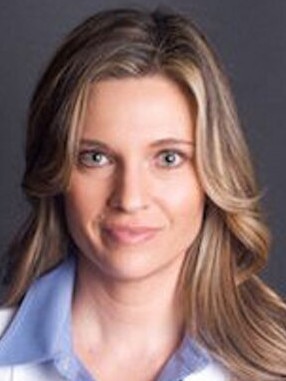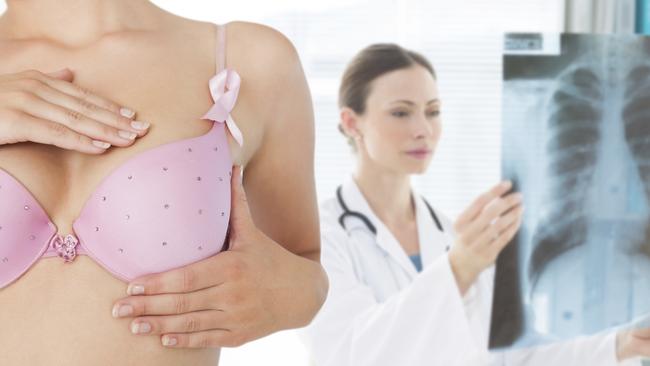Angelina Jolie’s breast cancer surgeon answers questions about the actor’s cancer treatment
Angelina Jolie’s breast cancer surgeon has spoken about her nerves before she carried out the Hollywood star’s treatment and urged women to take some vital steps towards prevention.
Health
Don't miss out on the headlines from Health. Followed categories will be added to My News.
Get genetically tested and begin imaging screening 10 years younger than the youngest relative with breast cancer – or by age 40.
They are the two critical pieces of advice from the doctor who operated on Angelina Jolie.
Here, Dr Kristi Funk reflects on the actor's treatment and the cancer advancements that have come in the decade since.

You were involved in Jolie’s treatment, how would you assess the impact of her revelation on the behaviour of women around the world?
Angie’s revelation introduced countless millions to the existence of gene mutations and to the availability of genetic testing. Perhaps the most salient ripple effect stemming from her announcement was that she helped normalise the conversation around genetic mutations and the steps women can consider to offset the risk of life threatening cancer becoming part of their health story.
What was it like treating one of the most famous women in the world, were you nervous, did the surgery go smoothly?
I was not nervous. I felt focused and confident that I could deliver the flawless surgical technique required to both maximally reduce Angie’s cancer risk while optimising her cosmetic outcome. And, yes, we did as planned – all went smoothly!

Ten years have passed since Ms Jolie had her surgery, has anything changed about the way we manage women with these cancer genes? If so what?
One thing that has changed is that we now we now have more data showing the safety of nipple sparing mastectomy in gene mutation carriers, and as a result, it is more frequently offered as a surgical option. Also, PARP inhibitors have emerged as an effective treatment choice for some BRCA mutation carriers with an existing breast cancer. Otherwise, it’s fairly status quo; surveillance remains the same. No vaccine, pill or superfood has been identified to awaken a broken BRCA gene and restore it to normal function.
What more work needs to be done in this area?
Ongoing research into gene therapy holds promise that one day we can replace or repair mutated BRCA genes, restoring them to normal function. Why do some carriers get cancer and others do not? I believe epigenetics holds the answer. We must explore the complex interplay between controllable dietary and lifestyle choices, environmental exposures and traumas, and how they interact to turn on or off hundreds of other genes that then influence the functionality of the BRCA gene.

What is your advice to women who come from families with high rates of breast cancer?
My advice is to get genetically tested, begin imaging screening 10 years younger than the youngest relative with breast cancer, or by age 40; start monthly self-breast exams as a teenager, and – most importantly – learn that you have so much more control over this disease than you might think. Only five to 10 per cent of all breast cancers result from an inherited gene mutation such as BRCA. Admittedly, a small subset of cancer inexplicably occurs in young and healthy women. However, the vast majority of all breast cancer stems from decades-long repeated negative exposures that result from the daily choices we make. Science shows that eating a whole food plant-based diet, exercising regularly, maintaining an ideal body weight, and avoiding alcohol slashes breast cancer risk by up to 80 per cent. In addition, do your best to minimise environmental toxicities (e.g. endocrine disrupters like the BPA in plastics, phthalates in cosmetics, pesticides in inorganic food), avoid hormone replacement therapy, fast regularly, and manage stress effectively. Love, laugh, and forgive.
More Coverage
Originally published as Angelina Jolie’s breast cancer surgeon answers questions about the actor’s cancer treatment




